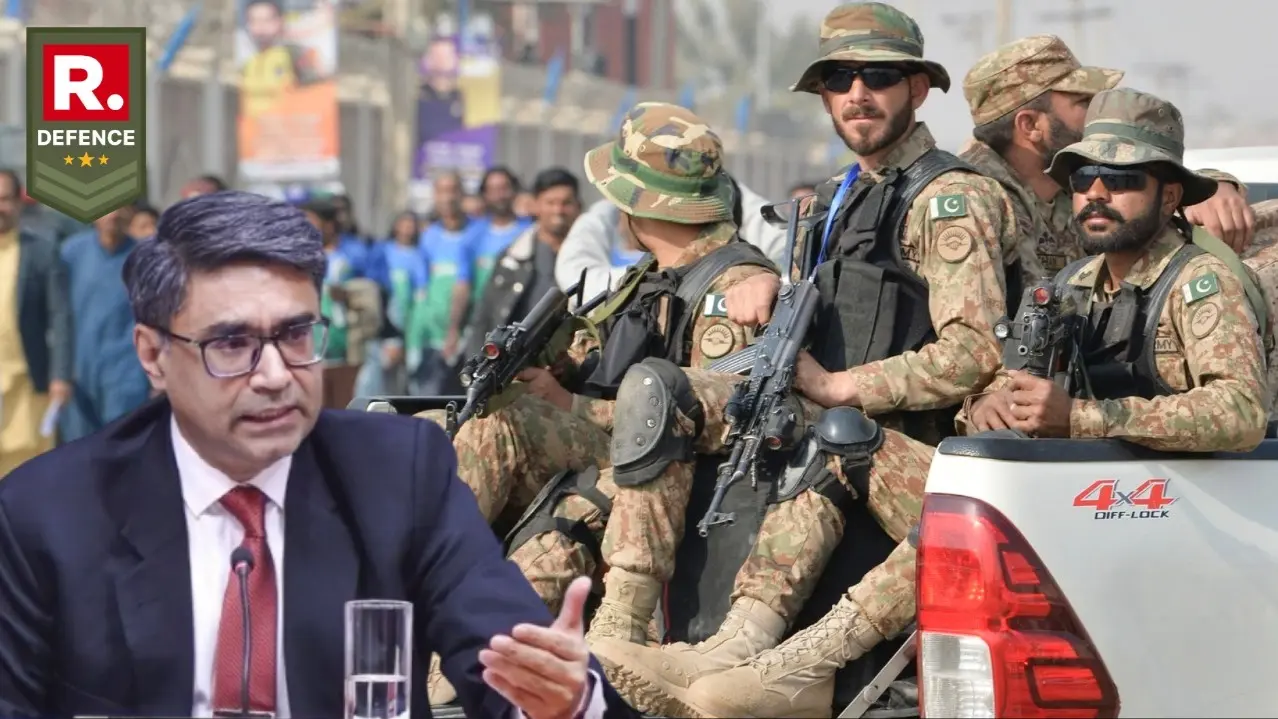Updated 21 April 2025 at 12:07 IST
India Slams Pakistan's OIC Rants, Cites Kashmir Terror Push and Balochistan Failures
India has issued a strong rebuttal to Pakistan's use of the Organisation of Islamic Cooperation (OIC) to raise the Kashmir issue.
- Defence News
- 3 min read

New Delhi, India - India has issued a scathing rebuttal to Pakistan’s latest attempt to internationalise the Kashmir issue using the Organisation of Islamic Cooperation (OIC) as a political front. Addressing the press ahead of Prime Minister Narendra Modi’s upcoming visit to Saudi Arabia, Foreign Secretary Vikram Misri denounced Pakistan’s “longstanding habit” of weaponising the OIC platform. He emphasised that such antics have become predictable and hollow, losing traction among key OIC member states.
Misri categorically rejected Pakistan’s remarks at the OIC, labelling them as deliberate provocations meant to distract from its internal decay. He said these “shenanigans” are well understood by the broader Islamic bloc and dismissed them as an extension of Pakistan’s state-funded disinformation playbook. India reiterated its stance that Jammu and Kashmir is its sovereign internal matter and beyond the purview of international bodies.
Islamabad’s Duplicity In Exporting Terrorism
Pakistan’s obsession with Kashmir is part of a larger strategy to shift global attention from its own failing counterinsurgency campaigns. In recent months, Baloch insurgents have intensified attacks on Pakistani military posts, convoys, and even CPEC-linked infrastructure projects. Despite these cascading failures, Islamabad continues to make noise about Indian-administered Kashmir on international platforms.

India also raised the issue of Pakistan-backed jihadist networks operating across the Line of Control and targeting civilians and security forces in Jammu and Kashmir. Groups like Lashkar-e-Taiba and Jaish-e-Mohammed continue to receive logistical and financial support from Pakistan’s deep state. These same groups, previously designated as terrorist outfits by the UN, have found safe haven and social legitimacy within Pakistan’s political structure.
Advertisement
MEA Says India Will Not Allow Forums Like OIC to Be Hijacked by Fringe Anti-India Rhetoric
Misri pointed out that while Pakistan pushes its Kashmir narrative at every OIC gathering, member states like Saudi Arabia, UAE, Egypt, and Oman have quietly distanced themselves from such politicised resolutions. Instead, these nations are choosing deeper economic and strategic partnerships with India. “They may nod at Pakistan’s speeches, but the real work is being done with New Delhi,” a senior MEA source said.
The MEA added that Pakistan’s own handling of ethnic minorities reveals the hypocrisy behind its human rights advocacy. From enforced disappearances of Baloch students to the military suppression of Pashtun Tahafuz Movement activists, Islamabad’s record is marred by abuse and censorship. Yet, these issues rarely feature in OIC discourse, revealing the selective outrage driving the organisation’s statements.
Advertisement
India’s response also reflects growing confidence in its West Asia outreach and its unwillingness to allow multilateral platforms to be reduced to propaganda outlets. With PM Modi’s Saudi visit expected to see significant announcements in energy and security cooperation, the MEA’s tone signals a zero-tolerance approach to Pakistan’s narrative warfare. Diplomats say India’s deepening Gulf ties make it difficult for fringe statements at the OIC to translate into real-world outcomes.

While Pakistan clings to the Kashmir issue as a pillar of its foreign policy, India is forging strategic alignments that bypass Islamabad’s influence entirely. Bilateral ties with OIC heavyweights continue to grow, underpinned by trade, defence cooperation, and diaspora links. As Pakistan battles insurgencies at home, its capacity to mobilise credible international support has significantly eroded.
India’s final message is clear—no platform, however large, can validate Pakistan’s revisionist claims on Kashmir. Nor will New Delhi allow terror exporters to masquerade as human rights champions. With the global tide shifting toward pragmatic alliances, Pakistan’s OIC theatrics are increasingly falling on deaf ears.
Watch- PM Modi To Visit Saudi Arabia From April 22 To 23, MEA Slams Yunus Govt Over Persecution Of Hindus
Published By : Yuvraj Tyagi
Published On: 21 April 2025 at 12:07 IST
